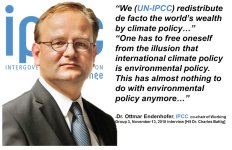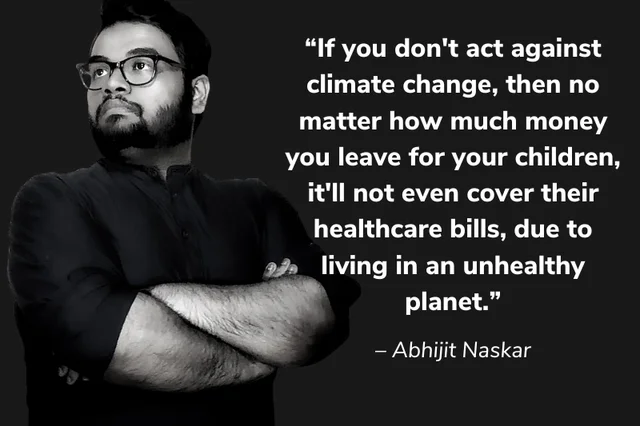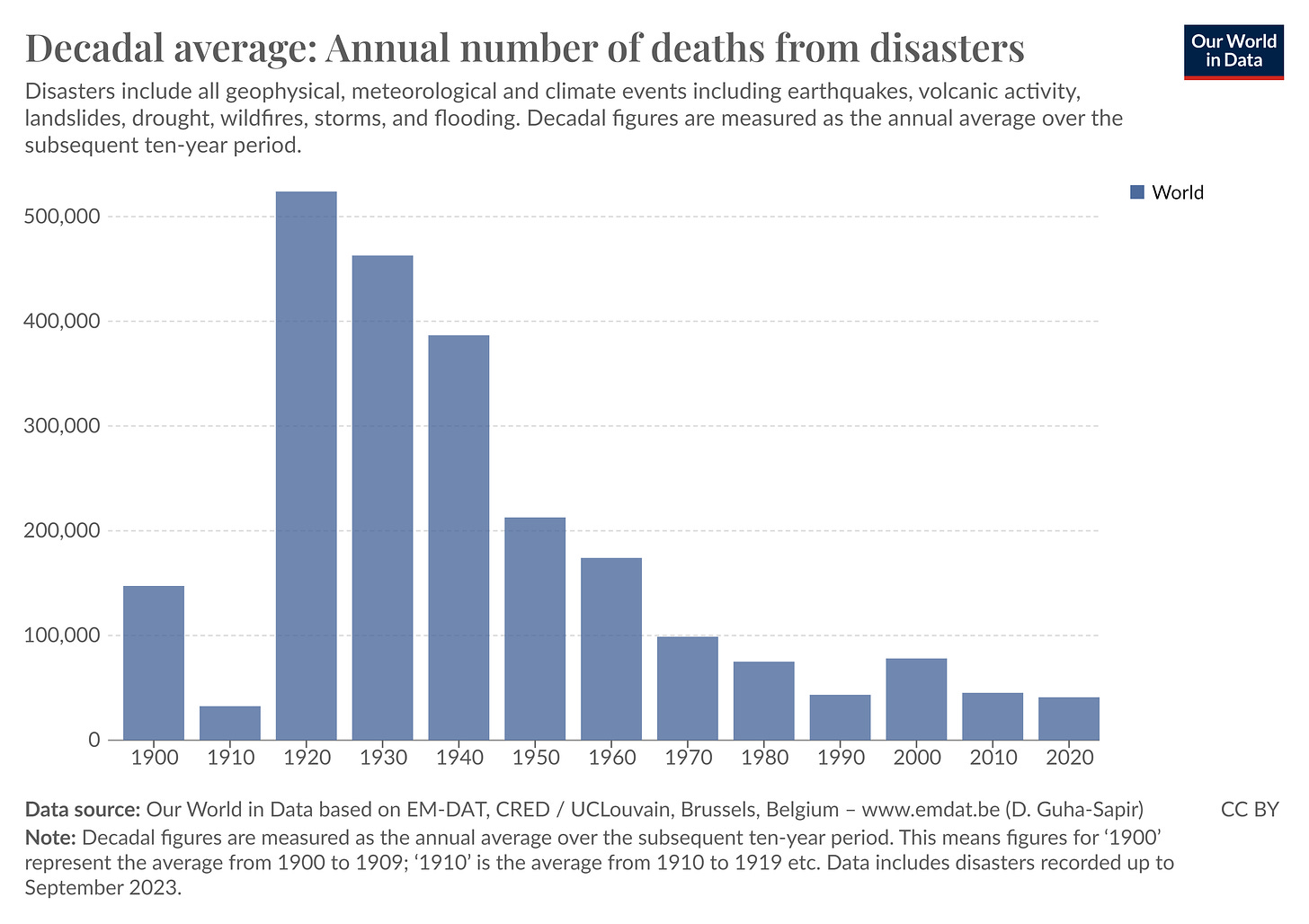Weird. We've been told natural disasters and the climate have been getting worse.
In his recent State of the Union address, President Joe Biden ditched the term “
climate change.”
Apparently, the phrase isn’t scary enough. Instead, as the
New York Times noted, Biden employed a different alliterative phrase:
climate crisis.
That the Earth’s climate is changing and human activity influences these changes to some degree or another is something that few today deny. But the claim that these changes represent a crisis to humanity deserves scrutiny.
It’s an undisputed fact that climate-related deaths have plummeted over the last century.
The International Disaster Database is a dataset comprised of more than 26,000 mass disasters since 1900, and it is maintained by the Centre for Research on the Epidemiology of Disasters at the University of Louvain in Brussels. It shows climate-related deaths have fallen 99.5% since 1920.
It’s important to understand that even those who believe that climate change is a human crisis concede this fact, as
Reuters did in
this 2023 fact check.
This is no doubt true, although other unnamed factors almost certainly played a role, such as improvements in medicine and other lifesaving technologies. But that’s the whole point: Adverse consequences of climate disasters can be mitigated with human ingenuity.
Those who argue climate change is a “crisis” have difficulty acknowledging this fact. Many would rather call climate crisis skeptics “deniers” or accuse them of spreading misinformation.
Indeed, the very
Reuters article that admits climate-related deaths have fallen precipitously states that this is “not evidence against a climate ‘emergency’” and alleges such figures are “misleading.”
“Disaster mortality is not a useful metric for quantifying climate change,” the fact check states.
There are two problems with this claim.
First, saying that disaster mortality is an unuseful metric for understanding climate change is an opinion, not a fact. Having opinions is perfectly fine, but
Reuters is conducting a
fact check. (And pointing out that climate-related deaths have plummeted over the last century is a fact, not an opinion.)
Second, those who believe climate change is a crisis have little problem using disaster mortality figures when the numbers tell their story.
The World Economic Forum
projects that “by 2050 climate change may cause an additional 14.5 million deaths.” The
New York Times has no problem
reporting on a World Health Organization study that projected “250,000 deaths annually from 2030 to 2050” because of climate change. Ditto with
Forbes, which
shared figures from a Nature Communications study that claimed climate change would result in 83 million excess deaths.
And then
there’s Reuters.
Disaster mortality seems to be a perfectly useful metric for understanding climate change, at least when the numbers show millions of people dying. That’s really the biggest difference here — well, that and the fact that the International Disaster Database is using
actual deaths, not imaginary deaths in a hypothetical future dreamed up by modelers.
One can only wonder if this is why so many people are suffering from
crisis fatigue. As if the world was somehow suffering from a shortage of genuine crises, doomsayers are creating imaginary ones that haven’t materialized yet but could in some not-too-distant future if we don’t do what we’re told.
None of this is to say we shouldn’t be responsible stewards of the environment; we should. But we should also recognize the basic economic truth that all policies come with trade-offs, and those trade-offs have the potential to be far more damaging to humanity than even the darkest visions conjured by climate change doomsayers.
Many, including Biden, like to imagine a world without fossil fuels. But it’s important to realize what that world would look like. Electricity grids would go black. Food deliveries would slow, then stop. Then, food production.
“Even if I could walk to the grocery store, there’d be no food there,” Samantha Gross, director of the energy security and climate initiative at the Brookings Institution, told the
Washington Post in an article imagining a world without fossil fuels.
Fortunately, this vision, too, is just imaginary. But history shows just how fast
nightmares can become reality when the state is given unchecked control over an economy.
And this is what makes Biden’s climate crisis rhetoric so dangerous.
Crises, both real and imagined, have been the greatest enemy of freedom in modern history. In his book
Crisis and Leviathan, the historian Robert Higgs showed how they have been the pretext used time and again by those in power to trample individual rights, violate constitutions, and tighten their grip on power.
Once one understands the political potential of crises and the appeal of climate change scaremongering
to those who support planned economic systems, it’s not difficult to see why we’re experiencing a “climate crisis,” even when climate-related deaths are at
historic lows (see below).





